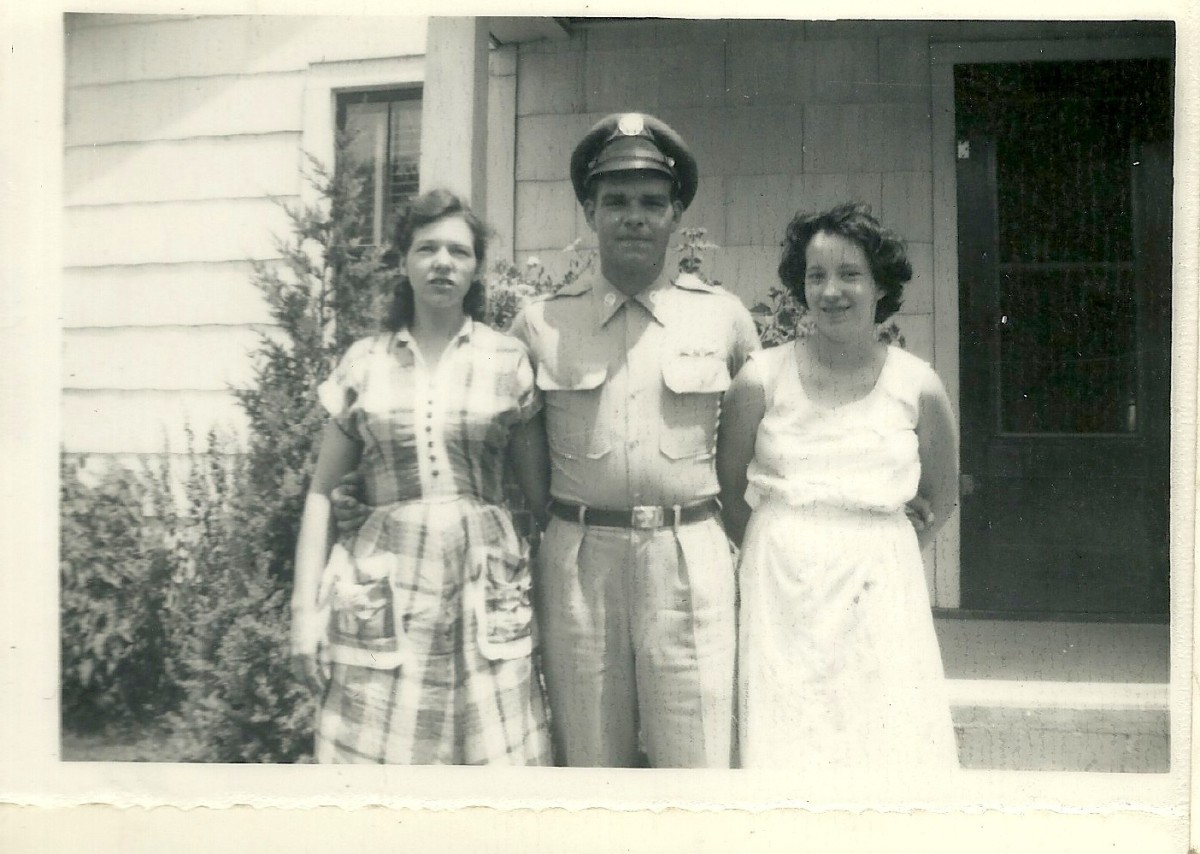WHAT HAPPENED TO RESPECT AND APPRECIATION, PART ONE
INTRODUCTION
This is the first in a series of blogs addressing the topic, What Happened to Respect and Appreciation? These blogs correspond to six foster parent training classes that I am facilitating at San Bernardino Valley College on Tuesday and Friday mornings from 9 a. m. to Noon, starting January 11 and ending January 28, 2011. If you live nearby and want to attend the classes, email me.
Here is the schedule.
Tuesday, January 11, 2011: What Happened to Good Ol’ Authority?
Friday, January 14, 2011 What Are Our Needs For Respect and Appreciation About?
Tuesday, January 18 The Relationship Between Foster Parent and Foster Child
Friday, January 21 Firmly Holding The Child Responsible and Accountable
Tuesday, January 25 So What About Discipline?
Friday, January 28 What Do I Want For Their Children?
PLEASE NOTE. Although the target population, so to speak, are foster parents, the wisdom here is for all of us who are parents and or caregivers of any kind.
WHAT HAPPENED TO GOOD OL' AUTHORITY?
OUR NEED FOR RESPECT AND APPRECIATION
There is no question. We, as adults, have needs for respect and appreciation that seem to be deeply-rooted in our souls. Where did these needs come from? Why do we have such a difficult time getting these needs met in adult relationships, and why in the world do we even attempt to get them met in our relationships with children? There are some simple but good answers to these questions, and we will at least touch on them today, but explore them in detail in Friday’s (January 14) class.
As a start, from the very, very beginning, our brain is designed to initiate contact with those big heads that pop over the side of the crib or basinet. When we initiate contact with them, and the big head responds in kind, ten thousand neurons fire simultaneously and begin to set up patterns of attachment.
So the big head looks over the crib and intelligently, knowingly waits. We look at the big head and smile and utter, “goo goo goo.” When the big head responds in kind, so the big head smiles back and says, “goo goo goo,” we, as a little person, begin to feel emotions associated with being understood and being felt (perhaps, even respected, revered, and appreciated! Wow, wouldn’t that be something?). This interaction between infant and parents or caregivers carries the infant to the experiences of both loving and being loved by the time the infant is nine months old. Yes, by nine months old. Pretty frightening, and yes, it doesn’t always happen, probably doesn’t happen most of the time, and so we begin our life, from early on, with significant wounds that shape the rest of our lives. Doesn’t mean we are helpless victims, nor does it mean we have to blame anyone or parent bash, it simply means we need to be aware of where, in our lives, we deserve healing, and why most of our relationships are screwed up in some way or another! Either we are codependent to a fault or cold and distant or cut off and controlling! Or maybe you are all of those! Hey, call me. Make an appointment before you die either at the hands of others or by your own hands! I know it is not funny, but darkly funny. Gotta laugh or else we will drink and drug, sex and gamble, and exercise ourselves to death, or volunteer for some deserving organization, but unwittingly in an addictive fashion.
Let’s face it. It has only been recently that we have actually understood the neurobiology of attachment In the days of old, the big people had no clue about the importance of allowing us little ones to initiate an interaction, especially Granny. You know, Granny with the bright red lipstick, the teeth that come out at night and whenever she opens her mouth, and she had that smell. It’s a weird ass old woman’s perfume mixed with a hint of death! It was traumatic when this woman walked in the room and lifted you up out of the crib and smacked you right on the lips!
Come on, Granny, don’t take offense. I know contemporary grannies are young and don’t smell like they’re dying. Laugh, for crying out loud!
Prior to our understanding of attachment, infants were considered blank slates with little or nothing to offer let alone initiate. They were there only to receive. So, as a receiver, at some point, you were expected to appreciate and respect the folks who are giving you everything as well as what it was they gave you, for better or worse. Honor your father and mother, no matter what!
M-m-m. So here we go, the beginnings of this respect and appreciation “thing.” In fact, most of us probably picked up intuitively, on an emotional level, very early on, that we might not be loved (not much positive energy or attention) if we didn’t show mommy and daddy respect and appreciation. They were always asking us, “So, what do you say....What is the magic word?” Do you remember that?
Now if these questions weren’t bad enough, there were other things said to us that perhaps we did not comprehend verbally, but our bodies understood and FELT the message. And our bodies responded to these messages with FEAR. And note this. Perhaps those messages were symptoms of the big person’s need for respect and appreciation.
“What is wrong with you? Why are you crying, I just fed you.....changed you....spent an hour reading you a story.....you’re not spoiled are you?....I am going to paddle your bottom if you do not stop crying....you are too demanding....my God, you’re just a baby and look at you, you want every second of my time.....what’s it going to be like when you are two years....three years....grown up?”
Pretty devastating, stupid, lacking brilliance, ignorant questions. But they were questions that many of our parents and caretakers asked, and they are questions that many of us have asked of our children in turn, not realizing what we are passing down.
The attachment issues become even more complex, when, for whatever reason, the parents’ or caregivers’ need for love outweigh the infant’s. You can recognize this happening when there are subtle and not so subtle messages to the child that they will receive love only as long as they respect and appreciate the wishes of the big people. Parents continue to give such outlandish messages even to teenagers, perhaps especially to teenagers.
It is so traumatizing to me as a therapist, when it all enfolds in front of me. A teenager, not only devastated by life, (you know how it happens, I get into drugs, I get pregnant or get someone else pregnant, I fail school, or I succeed in school and don’t do drugs, but I make one big mistake, like getting pregnant), and now floundering, sitting here on the therapist couch like I am on trial, and the only support from the two most important adults in my life is, “How could you do this to us after all we have done for you? You certainly can’t expect us to support you now.”
Perhaps you have said this yourself to your teenagers and still don’t get it, how bassackwards the statement is. Read the poem FOOTPRINTS if you don’t get it. Don’t argue with the poem. Read it, and ask yourself: Am I willing to walk along side my child and carry my child when needed? I am not talking adult children here. I am not suggesting enabling. I am suggesting being parents and caregivers up to that moment it is obvious that your “job” is complete.
Unfortunately, when our early experiences, as an infant and a toddler revolve around our parents’ needs for love and respect and appreciation, our soul’s innate movement toward self love, self respect and self appreciation get sidetracked or neurologically short circuited. In the matrix of respect and appreciation in the traditional sense, there is no room to learn anything about self love or spirituality. We learn that so-called love ONLY comes from the outside, particularly from the big people, those who are above us. We also learn that those above us will not love, respect or appreciate us. We exist only to make them feel loved, respected and appreciated--powerful. So then as we get older and physically stronger, we become desperate for love, respect and appreciation and learn, in turn, to subjugate as many people as possible. We become closet bullies or just plain bullies. The resultant spiritual bankruptcy leaves us with either no experience of God’s love or God’s love looks like the love the big people give us–scary, fearful, and totally conditional. .
So stop and think about this stuff. Why is it that we need other people to respect and appreciate us? Why isn’t it enough that we give that to ourselves? The problem is we don’t give it to ourselves. The commandment, “love your neighbor as yourself” is a frightening commandment for our neighbors. Yes, it is frightening for our neighbors because they see how we love ourselves (well, the way we do NOT love ourselves) and they don’t want to be loved that way. I know because they’ve sent me emails about both you and myself!!
The only way we will ever learn to respect and appreciate ourselves and others is to have the experience of being respected and appreciated as infants, as toddlers, as preschoolers, as school-aged children, and as teenagers. It is not something we earn, but something given to us so we have to give.
Again, as adults, we do not need respect and appreciation from our children. We may need it from our peers, from other adults, from the community at large, from ourselves. Besides, our kids don’t have it to give us unless we put it there in the first place and teach them that the last thing we need from them is respect and appreciation, because that is something they get from us and something they will give their children and all the people in their lives who they love. It is something to be given, not needed, not taken, not stolen or forced from.
Okay, perhaps enough on that for today.
After that “rant,” you probably don’t want to know what happened to good ol’ authority!
But let’s look at that. What did happen to it? Where did it go?
WHAT DID HAPPEN TO GOOD OL' AUTHORITY?
For a very, very long time, there has been an evolution of a revolution. I think this revolution may go back to the very beginnings of time. As human beings, we keep working at treating each other as human beings who have worth just because. We keep trying to clarify that our color, our beliefs, our wealth or poverty, our occupation, has no bearing on our intrinsic worth and intrinsic equality.
In our own country, this evolution of a revolution has its roots when the first settlers came here to escape religious persecution. It has its roots in our declaration of independence. And our country has had to travel a very long, painful, and challenging road to arrive where we are today. We still have a long ways to go, and many would argue that there is no such thing as equality in our country, but I think we have made some pretty significant and visible progress.
Here is the progress. There is no place today where authority can rule without absolute accountability and responsibility. Everyone in authority, including law enforcement, the military, politicians, church, the medical field, teachers and schools, EVERYWHERE, authority is held accountable and responsible for its behavior and decisions. Just because you are someone in authority does not get you off the hook as it did at one time. Authority no longer rules, but LEADS.
The only place left where authority still tends to rule, even though there is significant change here as well, is in the “kingdom” of parent-child relationships. Parents still want to hold on to an absolute authority over their offspring , as if children are their property. Yes, we have implemented many laws and rules attempting to protect children, but the spirit, the mentality, the underlying belief that parents ought to be able to do whatever they want with impunity and without interference still prevails. Many parents think that child protection laws tie their hands and place children in the driver’s seat. If you really believed that your children are precious and equal human beings, you would NOT see child protection legislation as restricting you, but as a societal shift with ramifications that extend far beyond parent-child relationships. These laws call us to think bigger and more intelligently than the previous generations.
The fact that many of you, who are at this very moment reading this blog, still believe that a swat on the butt is harmless speaks volumes to me. You and I would never tolerate a swat on the butt from ANYONE no matter how lightly rendered!
CORPORAL PUNISHMENT
You can argue all day along that corporal punishment works when all else fails. But we never take the time to define the definition of “it works.” Corporal punishment works to instill fear in some children, and in others, a need to get even, and for those get-even children, they always do get even whenever we treat them as less than equal. They are the kids you say, “I could spank him till he was blue in the face and it wouldn’t phase him.”
Corporal punishment does not instill in children a sense of responsibility for their behavior but only an avoidance of getting caught or for some children, who have such an intense need to belong, a false and exaggerated sense of being less than.
For me, it is pointless to argue if corporal punishment works. It worked to cut off your leg with a fifth of booze during the civil war, but no one would tout that form of anesthetic today except perhaps your HMO. Can you see the commercial? “Hey, want to save some cash on your premium? Well just check the happy hour option on your application and save even more money by bringing your very own favorite booze.”
A lot of things SEEM to work when all else fails, but again what is the definition of “it works.” It works to spank the kid when all else fails because it leaves you feeling in control and not powerless and helpless, at least not until afterwards when you might feel awful and stupid.
Here is the bottom line. We know a great deal about what makes us tick and what influences human behavior in general. Think about your most favorite boss or work setting. What motivates you to give your very very best there? And then think about your least favorite boss and work setting. What makes you sick when you wake up in the morning and call in sick?
We all know that whatever we give energy to persists. That is why, more and more, we do not respond to someone on the freeway attempting to engage us in a road rage conflict. In terms of parenting, you look for the behavior you want to see more of and give ENERGY to it. I did not say REWARD the behavior. I said give personal heart-felt energy to it. If you look for the behavior you want to see more of, it will always show up. Perhaps not exactly when you want it to, but with patience, it always shows up, and that is the moment you give an abundance of energy to the behavior you want to see more of, and you will see more of it..
A STORY OF A VERY ANNOYING TWELVE YEAR OLD
So here is the story of a young 12 year old who was living with us for four months. Every morning, he refused to get out of bed. He whined and moaned like an injured animal. His mother did everything from trying to love him out of bed to hitting him and yelling at him to withdrawing from him. It was driving me insane to the point I wanted to use my drill instructor approach with him. You know, “Get your f.... ass out of bed, and I never want to hear any of this whining......” I did pull her aside and showed her exactly how to get him out of bed in the morning, but part of the plan was to stop sitting on the bed with him and to stop telling him “I love you.”
“Oh, I have to tell him I love him....no one told me when I was that age....”
I tried to convince her that she had twenty three hours and fifty nine other minutes each day to tell him she loved him. Just not then. It was mixing up apples and oranges! She could not get it and continued each morning with the insanity.
I wanted to kill them both (colloquially speaking!). But I contained myself and asked myself the question. What is the behavior I want to see more of? At first, I could not answer the question. Finally, I realized how simple the answer was. I wanted to see him up, dressed, and ready to catch the school bus BEFORE the school bus arrived! Once I realized that was the behavior I wanted to see more of, I started looking for it.
Yes, within three days of me getting clear what the behavior was, it showed up, right smack in front of my face. That is how it works. There he was, dressed, standing in front of the mirror, combing his hair, fifteen minutes prior to the school bus showing up. Wow! There it is.
So this is what I did. I walked to the bathroom door and said, “Hey, you have a good day today.” I said it with lots of gusto and a big smile. I said it with an underlying tone that non verbally said, “I know you are going to have a good day because you are such a cool kid. And I like you.”
I was shocked at his response. “You have a good day too.” Whoa! Where did that come from? I was expecting an F bomb! So I knew this was THE moment. So I said, “Hey, tomorrow morning, I don’t have to be at the office till later, so how about you and I hitting Starbucks before your bus gets here.”
Here is the kicker, folks. It was not a deal. It was not a contract. We went to Starbucks probably three times over the next six weeks and every day he was up and ready for school on his own. What made this happen was his experiencing someone wanting to have a relationship with him, someone giving him energy when he was doing well and not vice versa.
I know it sounds simple and naive. But I tell you, it works. What you give energy to, persists.
So the bottom line for me is corporal punishment or any kind of adversive treatment in general (yelling, name calling, put downs, you-will-never-amount-to-anything kind of comments), is just plain archaic and unnecessary. It totally short circuits the neurobiological processes involved in attachment and the development of a healthy sense of self, and the development of compassion and empathy for others.
So usually at this point, someone will inevitably ask, “So do you have kids? And did you spank them?”
Well, the answer is yes, I have a son and three step children. And yes, I did spank my son. He will attest to it with much gusto! But I was way beyond any form of corporal punishment by the time I became involved raising my teenage stepchildren.
The fact that I spanked my son at one point in raising him is about as relevant as my telling you that I damn near drank myself to death. So having drank as a way to deal with stress and life’s pains doesn’t drive me to try to convince you that alcohol is a workable remedy because it is NOT.
And no, I didn’t spank very often, and in fact, rarely. But it doesn’t matter. Corporal punishment is archaic. When I was training to be a parent trainer, I walked out of the class one day knowing I would never use corporal punishment again. And I haven’t.
Playing the absolute authority card, whether in the form of corporal punishment or some other adversive treatment, basically teaches children that when all else fails in resolving conflict, resort to physical prowess. For me personally, I just refuse to stoop to such an ignorant level especially when we, as adults, never tolerate such treatment from anyone in our own lives. We are, after all, intelligent people, and yes, it takes time and patience to resort to something other than corporal punishment. But ask yourself, what is the legacy we want to leave for the future? I think world peace is possible, but it perhaps begins right here in this very issue.
So here is my invitation. We live in a democratic society. Yes? Hey, come on, close enough. So how are our children going to learn to live in such a society? When they are eighteen and eligible to vote, how will they know how to take their place in this democratic society? By osmosis? It does not work that way, and we all know that. Children CAN learn to live in a democratic society if home resembles a democratic society where everyone is treated as an equal, as precious, and as valuable.
If you run your family as a democracy, you STILL have authority. The buck still stops with you.
as parents. But your authority is manifested in the way you LEAD.
Each family member can look to you as the parent, as the leader, as the one who holds the authority, and see that you value yourself, that you see yourself as precious, as lovable, as somebody, and they experience you seeing other family members as precious, as lovable, as very important people (VIP’s). The way you live your life and the way you take care of yourself and them, bears witness to this.
Secondly, each family member can look to you and see that you are in control of YOURSELF. The way you live your life, the way you exercise self control bears witness to the fact that you are in control of yourself, and you INVITE other family members to be in control of themselves.
Thirdly, each family member can look to you and see that you take responsibility for all of your behavior, that you do not cop out and blame other people or life events for your short comings or failures. They also experience you making it safe for them to also take complete responsibility for themselves, to acknowledge when they have failed, that failure does not result in abandonment.
There are a multitude of ways to create “democracy” in a family, including having family meetings on a very regular basis where decisions are made about family matters that involve the entire family. Modeling leadership in these family meetings is important so that at some point, each member of the family has the opportunity to lead the meeting.
Family rules and guidelines, a long with consequences for violations, can all be decided upon during family meetings, so that each family members has an investment in the rules. Rules are not “things” that are arbitrarily imposed, but decisions into which everyone has input and investment.
So what has happened to good ol’ authority? It is evolving in every area of society, and we can allow that evolution to take place in the family as well. It takes a little courage and a little practice, but it works.
I am pretty passionate about this topic, as you may be able to tell. There is a lot more to say, and I am happy to show any and all of you how to have those family meetings. They really can be a lot of fun, even when something very serious needs to be addressed. The relationships that are developed during those meetings become the energy source for the family thriving and experiencing being a family. I will be teaching two classes, June 07 and June 14, during which we will experience this kind of family meeting.
THE RELATIONSHIPS THAT ARE DEVELOPED..... All the gimmicks and tricks and parenting skills in the world will never substitute for a powerful relationship between the parent and child. The bottom line is the relationship.
Often at this point in the discussion, someone will inevitably ask if I have ever worked with difficult or high risk children, implying that my non-corporal approach may work for normal children but not high risk children or kids who are stubborn or kids with ADHD or XYFU or bipolar or whatever is the popular diagnosis for the day.
The answer is Yes, I have not only worked with but lived with the most difficult children on the face of the planet Pluto.
I started my career in this field in 1967 and worked for five years with high risk teens in an inpatient setting. In those days, staff lived in the treatment center for the duration of their shift. So my shift ran from either Noon, Monday to Noon, Friday or Noon, Friday to Noon, Monday. Twenty four hour shifts times 4 for weekdays and times three for weekends. There was no escape! I’ve been called every name imaginable, have been hit in every place in the body that hurts, had my pinkie bitten to the bone, and the area under my eye split open from a head butt.
In the treatment setting, I could not use corporal punishment, so I had to use my intelligence to learn ways to interact with the teens. Again, what I learned is that it was the relationship that I chose to build between myself and those so-called high risk teens that made my job relatively easy and successful. Those staff who insisted on operating from a power base could not establish healthy and therapeutic relationships with the residents. They found themselves in constant physical altercations and spent hours on end writing SIR’s (serious incident report). They spent precious time trying to defend their frequent illegal behavior, namely the use of physical force.
Subsequent to those years of initiation, I continued to work in treatment settings as a therapist for a total of sixteen years. My practice now incorporates working with high risk teens in out of home placement, and I am quite familiar with the challenges they present. Challenges. Yes, challenges. Those challenges warrant the use of our very best practices when it comes to interpersonal skills and parenting skills. They do not warrant resorting to any kind of physical force or threat of. They do not require our playing the authority card, but rather playing our advocate card. Again we demonstrate to parents and other caregivers how to walk along side of these high risk teens who, in many ways, are no different than any of us.
I learned when a kid said “F...You,” to respond with “Holy s–t, you’re really angry today. You want to talk about it now or later.” Or if the kid could tolerate a little humor, I might say (a line from On Golden Pond), “Wow, that’‘s one of your favorite phrases, uh?”
When a kid brags about being sent to the principle’s office every day, I respond with “Wow, you’re a brave and courageous soul.”
My most favorite story is about the kid who let all the air out of ALL my tires. I was working late that day, till 10 p. m., so it was no fun when I went to go home. Fortunately one of the night staff had a compressor, and we refilled the tires and I went home in short order. I said absolutely nothing about the incident. Finally five days later, the kid could not contain himself and asked me how I got home “the other night.” I looked very puzzled and said, “like I always do. Put the key in the ignition, turned on the car, and drove home.” After repeating that line several times, he finally said, “No way, because I let all the air out of your tires.” I maintained my puzzled look and simply said again, “I don’t know what to tell you, man. I just remember putting the key in the ignition and turning on the car and driving home.”
I love this story!
At this point, some of you just cannot stop yourself from quoting the Bible where supposedly it says we are required by God's law to spank our children or else we are not good parents. I have yet to find that passage, but I know which one you will refer me to. All I can say to you is that it also says in Scripture we should stone women, so go figure! It also says in the NEW testament that any one who becomes a stumbling block for children should be drowned, but I don''t see any of us stepping up to the dock and volunteering!
THANK YOU for reading and commenting or if you are here in class, THANK YOU for attending and participating. I am looking forward to working with you on Friday.
If you are here in class, I will save time for you to present your real life scenarios for brain storming and problem solving so that you can take all of this discussion about authority and put it into practical practice. If you are “attending class” by reading this blog, please feel free to present your real life scenario in the comment section, and I will respond with some brain storming and problem solving here on hubpages. If you do leave a comment or a question, don’t forget to check back in a day or so for my response.
Thank you again.









